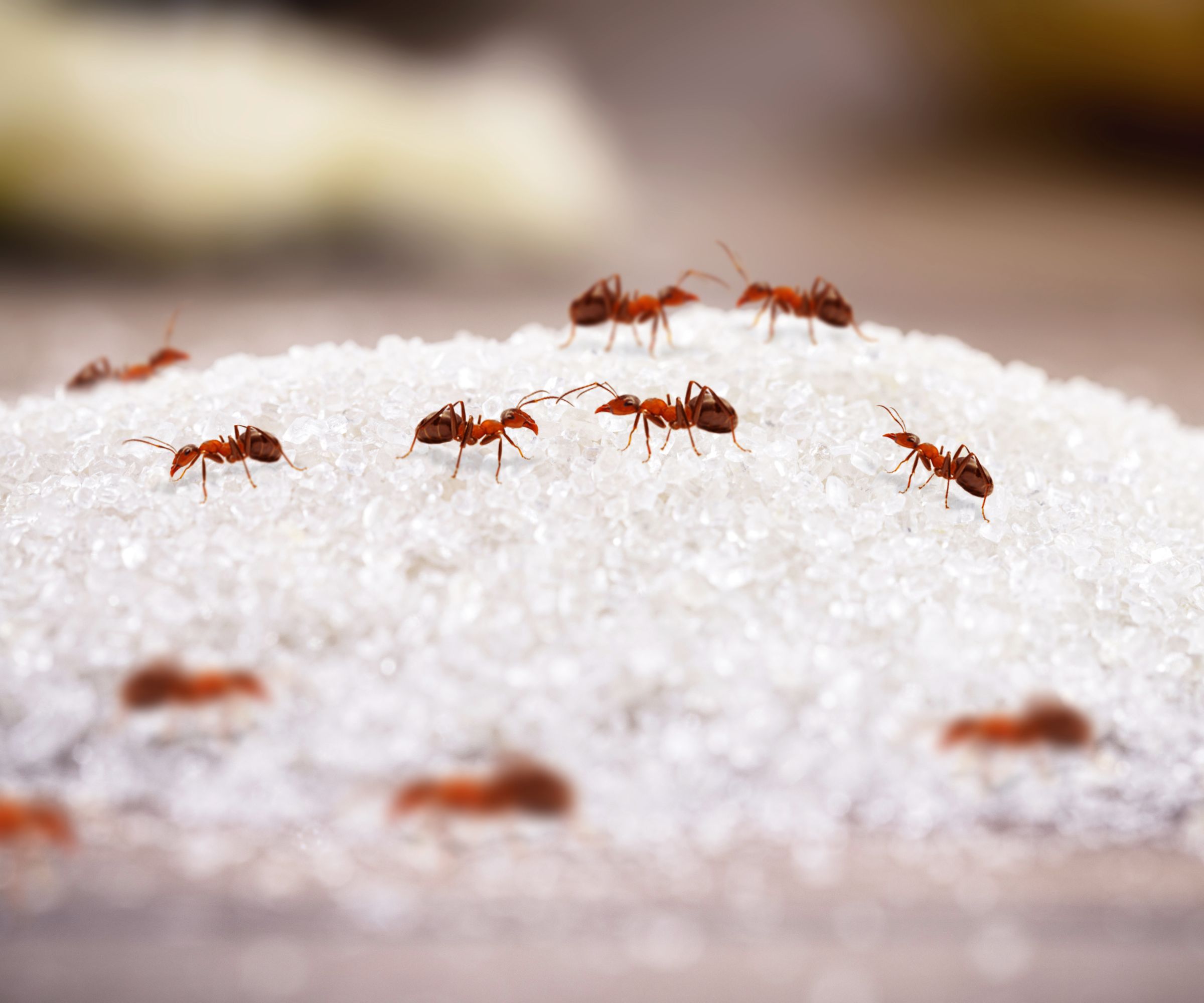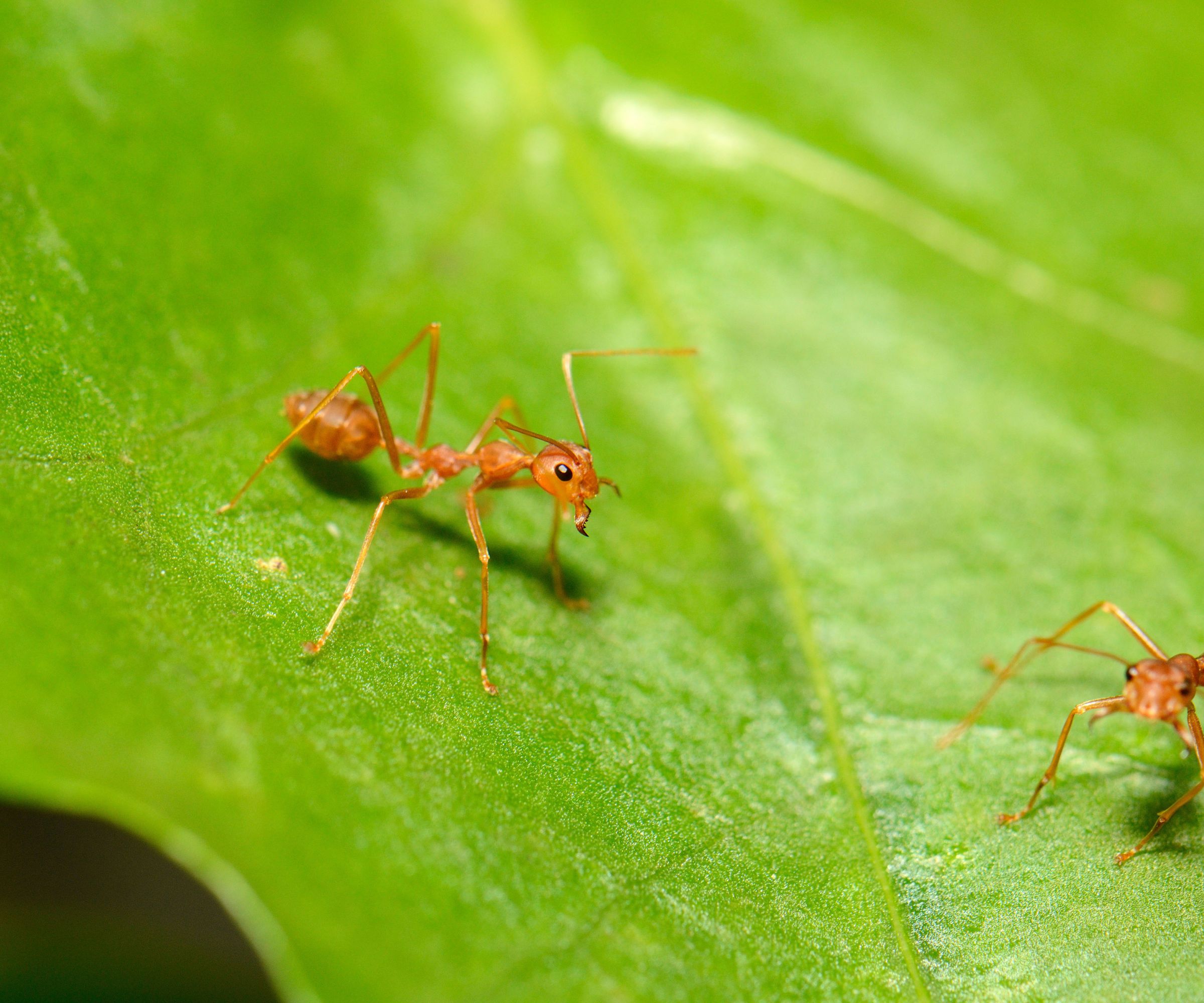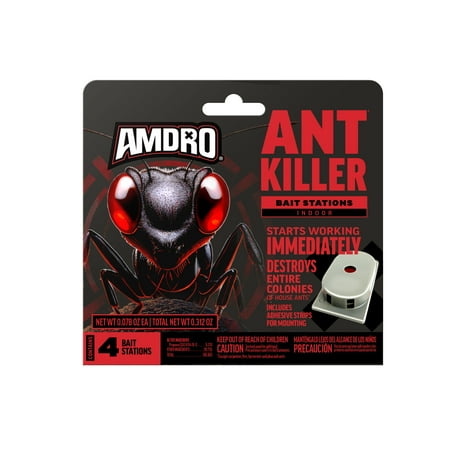Does vinegar kill ants? Pest control pros reveal relying on this pantry staple is a big mistake
Vinegar could cause a bigger pest problem


Ants can be a great sign that your yard is healthy and thriving, but they can quickly become a nightmare once they enter your home.
If you like to avoid chemical pesticides or want a quick fix to prevent a full-blown ant invasion, you might look to vinegar to kill ants and stop the invaders at your door.
Vinegar is a superpower ingredient to keep in your home, able to kill mold and remove odors from all sorts of spaces and surfaces, all without harsh chemicals. But is vinegar really that effective in getting rid of ants in your home? Here, pest control experts explain why they wouldn't recommend it.
Does vinegar kill ants?
As effective as cleaning with vinegar can be, it is not a good solution when wanting to kill ants. At most, the pungent smell of white vinegar will deter them temporarily, our experts say. As a smell ants hate, vinegar disorient them and when sprayed on their trails, disrupts their pheromone scent.
Therefore, pest control pro Bryan Clayton, co-founder of Greenpal warns that relying on vinegar to kill ants is a common pest control mistake.
He explains, ‘Relying too heavily on natural deterrents is a common pitfall people often tumble into. Don't get me wrong, I'm all for using natural pest control methods whenever possible, however, pests are tough little critters. They're wired to survive, and while your homemade vinegar spray may deter them for a while, it's usually not enough to clear out an established infestation.’

What to use instead

To eliminate ants in your kitchen for good and get rid of ants on lawns, Gene Caballero, co-founder of Greenpal says, ‘It's important to identify the type of ants you're dealing with to determine the most effective control methods. For example, if you're dealing with fire ants, their nests can be large and aggressive, requiring specialized treatments.
‘Bait stations are an effective way to target ants at the source. Place ant bait stations near the ant nests or along their trails. The ants will be attracted to the bait and carry it back to the colony, which helps eliminate the entire nest. Choose ant baits specifically formulated for the type of ants you're dealing with.'

Suitable for both indoor and outdoor use, these ant bait stations lure scout ants in to carry poison back to the nest, wiping ants out at the source.
Gene continues, '‘Alternatively, consider commercial insecticidal treatments [such as Raid Ant & Roach Killer, from Walmart] to directly target ant nests. Look for insecticides labeled for ant control and follow the instructions carefully. Apply the insecticide around the nest or along the ant trails. Take care to protect beneficial insects and follow safety guidelines to minimize environmental impact.’
FAQs
What attracts ants?
One of the biggest draws for ants in your home is uncovered sweet or carbohydrate-rich food. Anything from pastry crumbs to slightly overripe fruit can look like a feast to them. Keep your home clean and your trash bins tidy and away from the exterior of your home to discourage ants from straying too close to your property.
What does baking soda do to ants?
Baking soda, like vinegar, is not an effective way to kill ants. Baking soda is only effective against these pests if they ingest it, which they are unlikely to do as it is not appealing to them.
If you are dead set on using baking soda to kill ants, you can try mixing it with powdered sugar to make it more appetizing, but there are more effective methods that will protect your home more quickly.
As with any pest, prevention is always better than a cure. To prevent ants, make homemade bug sprays using a one to one vinegar to water ratio to deter them, whilst also keeping your home clean, limiting potential food sources that might draw them in. Or, try getting rid of ants with a bar of soap.
It is also worth brushing up on the ways insects are entering your home so you can block up sneaky gaps and stop them in their tracks.
Keep in mind ants come inside homes looking for water and food, and to escape wet, hot or cold weather.
Sign up to the Homes & Gardens newsletter
Design expertise in your inbox – from inspiring decorating ideas and beautiful celebrity homes to practical gardening advice and shopping round-ups.

Chiana has been at Homes & Gardens for two years and is our resident 'queen' of non-toxic living. She spends most of her time producing content for the Solved section of the website, helping readers get the most out of their homes through clever decluttering, cleaning, and tidying tips. She was named one of Fixr's top home improvement journalists in 2024.
You must confirm your public display name before commenting
Please logout and then login again, you will then be prompted to enter your display name.
-
 Can you paint a metal roof? Experts warn this could make or break your ‘worthy’ DIY efforts
Can you paint a metal roof? Experts warn this could make or break your ‘worthy’ DIY effortsDone right, it'll improve energy efficiency and avoid corrosion
-
 Summer House's Lindsay Hubbard has a scent-scaping tip that will impress your impromptu guests – it will change how you host in 2025
Summer House's Lindsay Hubbard has a scent-scaping tip that will impress your impromptu guests – it will change how you host in 2025The reality TV star and new mom has teamed up with AirWick, and has shared that she loves to use different scents in different areas of the home
-
 7 surprising things attracting pests to your home – and what to do right now to ward off summer infestations
7 surprising things attracting pests to your home – and what to do right now to ward off summer infestationsA clean home might still attract pests if you make these mistakes
-
 I'm a board-certified entomologist and this is the one rodent infestation control mistake I urge you to avoid at all costs – you'll regret it deeply
I'm a board-certified entomologist and this is the one rodent infestation control mistake I urge you to avoid at all costs – you'll regret it deeplyDon't put your health or home at risk
-
 5 non-toxic mothball swaps that work – ditch chemicals and that horrible odor with these simple but effective alternatives
5 non-toxic mothball swaps that work – ditch chemicals and that horrible odor with these simple but effective alternativesThey'll protect your clothing and closets from moths without harsh chemicals
-
 5 non-toxic pest control essentials proven to prevent pests humanely – and why avoiding harsh chemicals is a must to keep your family healthy
5 non-toxic pest control essentials proven to prevent pests humanely – and why avoiding harsh chemicals is a must to keep your family healthyNatural pest repellents are more affordable, too
-
 6 hidden places pests love to harbor their young – pest control experts reveal how to stop colony growth in your home
6 hidden places pests love to harbor their young – pest control experts reveal how to stop colony growth in your homeYou can stop pests breeding in your home
-
 How to keep stink bugs out of the house – according to entomologists
How to keep stink bugs out of the house – according to entomologistsSeal gaps, reduce plants, and use deterrents, pest experts recommend
-
 How to get rid of pill bugs inside your house and banish them for good
How to get rid of pill bugs inside your house and banish them for goodThough harmless, you won't want a pill bug infestation inside, entomologists warn
-
 How to get rid of mice in the attic – banish these pesky invaders for good with these top tips from pest control pros
How to get rid of mice in the attic – banish these pesky invaders for good with these top tips from pest control prosFrom what draws them in to how to get them out – experts reveal everything you need to know about dealing with mice in the attic